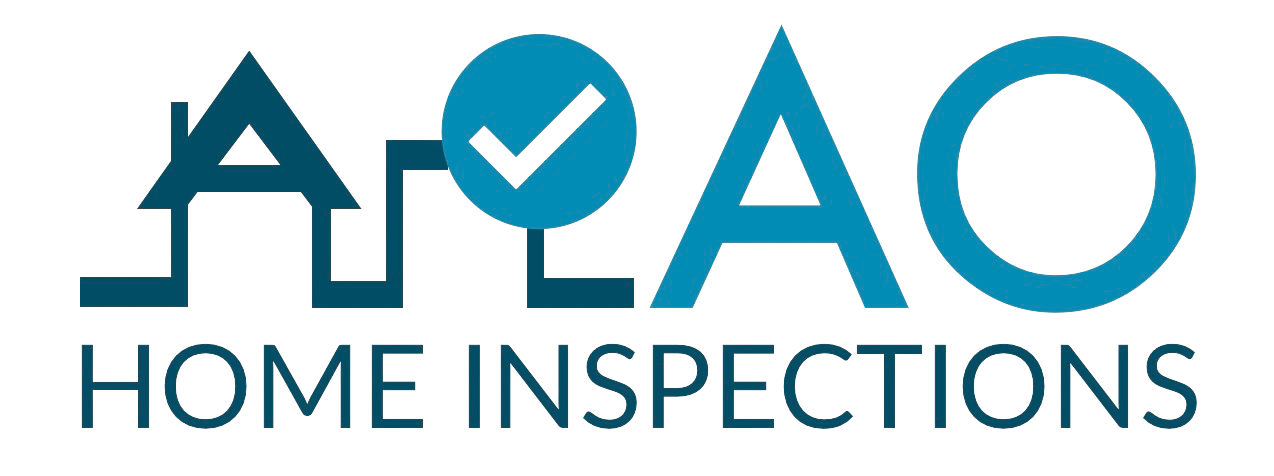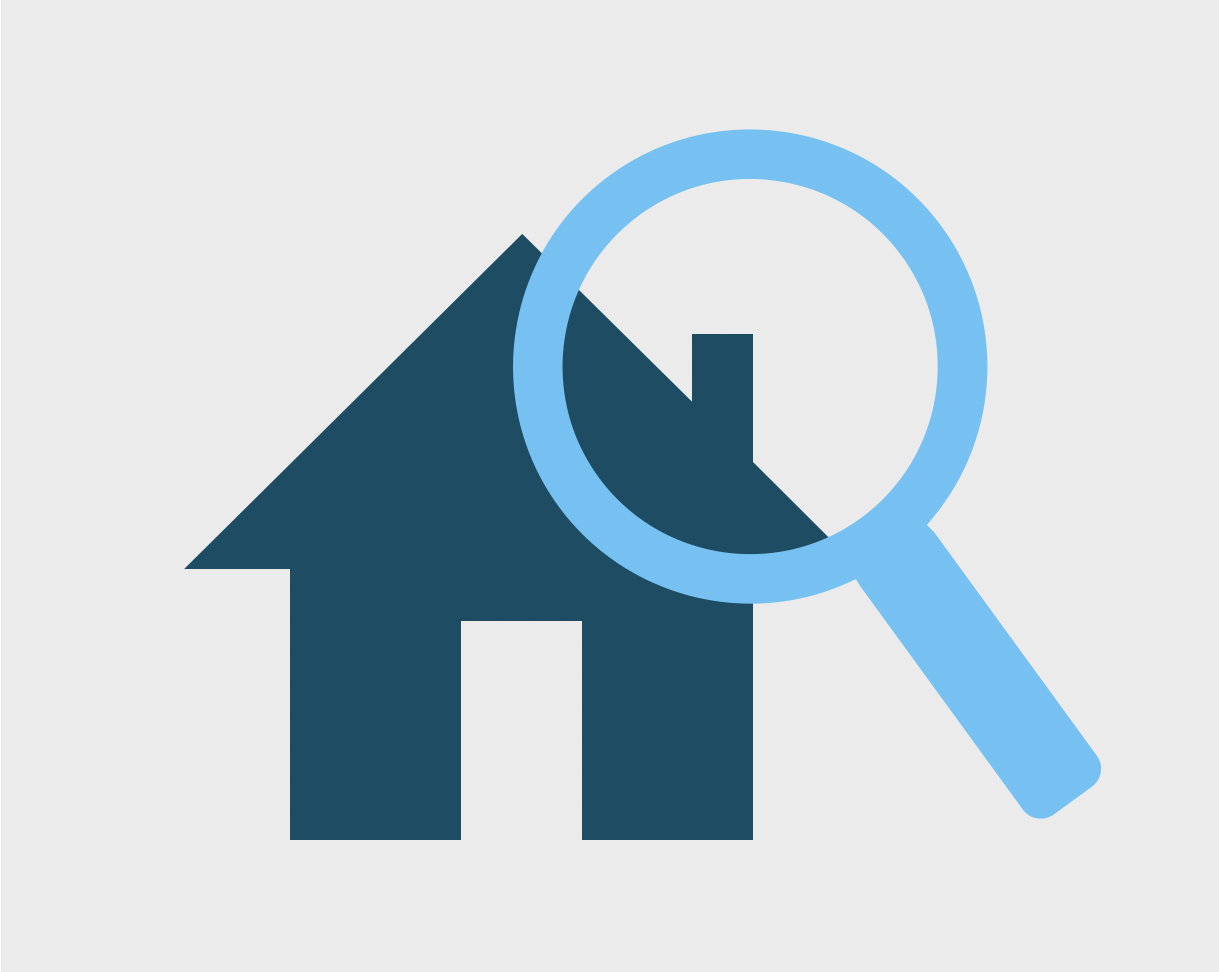Included Inspection Services
Systems
- HVAC
- Electrical
- Plumbing
- Ventilation
Interior
- Attics
- Garages
- Chimneys
- Bathrooms & Kitchens
- Insulation
- Windows & Doors
- Walls, Floors & Ceilings
- Crawlspaces
- Structural Components
- Basements
Exterior
- Gutters
- Flashing & Drainage
- Driveways & Sidewalks
- Exterior Cladding
- Decks & Porches
- Roof
Importance of Home Inspection: Why You Shouldn’t Skip It
Home inspections are an essential part of the home buying process. A home inspection is a non-invasive examination of a property’s condition, typically performed by a licensed professional. The primary goal of a home inspection is to provide the buyer with a comprehensive understanding of the property’s overall condition.
Understanding the importance of a home inspection is crucial for any prospective homeowner. A home inspection can uncover issues that may not be visible during a walkthrough, such as hidden water damage, electrical problems, or structural issues. By identifying these issues early on, the buyer can negotiate repairs or a lower purchase price. Additionally, a home inspection can provide peace of mind for the buyer, knowing that they are making a well-informed decision about the property they are purchasing.
Key Takeaway:
- Home inspections are a critical part of the home buying process.
- A home inspection can uncover hidden issues that may not be visible during a walkthrough.
- A home inspection can provide peace of mind for the buyer, knowing they are making a well-informed decision about the property they are purchasing.
Understanding Home Inspections
When buying a home, it’s essential to have a home inspection done to ensure that the property is in good condition. A home inspection is a visual examination of a property’s systems, components, and structure, conducted by a professional home inspector. The purpose of a home inspection is to identify any issues with the property that may need repair or replacement.
Types of Home Inspections
There are different types of home inspections that a buyer can opt for depending on their needs. Here are some of the most common types of home inspections:
- General Home Inspection: This is the most common type of home inspection. The inspector examines the home’s systems, components, and structure, including electrical, plumbing, roofing, foundation, HVAC, interior, and exterior.
- Pre-Listing Inspection: This inspection is done before the seller lists the property for sale. The inspection helps identify any issues that need to be addressed before putting the property on the market.
- New Construction Inspection: This inspection is done before the buyer takes possession of a newly constructed home. The inspector examines the property to ensure that it meets the building codes and standards.
Recognizing the critical role of home inspections in purchasing a home is key. They offer a detailed review of the property’s condition by a professional, aiming to give buyers a full picture of what they’re investing in. Identifying potential issues like hidden damage or structural concerns can lead to negotiations on repairs or price adjustments, ensuring buyers make informed decisions.
For a thorough and reliable inspection, consider reaching out to AO Home Inspections. Our certified inspector, with over 8 years of experience, are ready to provide the insights you need. Contact us to book your inspection and move forward with confidence.
What Home Inspectors Examine
Home inspectors examine different aspects of the property during a home inspection. Here are some of the things that home inspectors examine:
- Electrical: The inspector examines the electrical system to ensure that it’s safe and up to code. They check the electrical panel, wiring, and outlets.
- Plumbing: The inspector examines the plumbing system to ensure that there are no leaks or clogs. They check the water heater, pipes, and fixtures.
- Roofing: The inspector examines the roof to ensure that it’s in good condition. They check for leaks, missing shingles, and other damage.
- Foundation: The inspector examines the foundation to ensure that it’s stable. They check for cracks, settling, and other issues.
- HVAC: The inspector examines the heating and cooling systems to ensure that they’re functioning properly. They check the furnace, air conditioner, and ductwork.
- Interior: The inspector examines the interior of the property, including walls, ceilings, floors, and windows. They check for water damage, cracks, and other issues.
- Exterior: The inspector examines the exterior of the property, including the siding, gutters, and landscaping. They check for damage, rot, and other issues.
- Safety: The inspector examines the property to ensure that it’s safe. They check for smoke detectors, carbon monoxide detectors, and other safety features.
The Home Inspection Process
A home inspection is an essential step in the home buying process. It provides the buyer with valuable information about the condition of the property and helps them make an informed decision. The home inspection process typically involves three stages: Before the Inspection, During the Inspection, and After the Inspection.
Before the Inspection
Before the inspection, the buyer should research and hire a professional home inspector. It is important to choose a certified home inspector who is experienced and knowledgeable. The buyer should also ensure that the inspection contingency is included in the purchase agreement. This contingency allows the buyer to cancel the purchase if the inspection reveals major issues with the property.
The buyer should also prepare for the inspection by reviewing the home inspection checklist. This checklist outlines the areas that the inspector will evaluate during the inspection. The buyer should also make arrangements with the seller to access the property for the inspection.
During the Inspection
During the inspection, the home inspector will evaluate the property’s major systems and components, such as the roof, foundation, electrical, plumbing, HVAC, and appliances. The inspector will use specialized tools and equipment to identify any defects or safety issues.
The home inspector will provide the buyer with an inspection report that outlines the findings. The report will include detailed information about any issues found during the inspection. The report may also include recommendations for repairs or further evaluation by a specialist.
After the Inspection
After the inspection, the buyer should review the inspection report carefully. The report will provide valuable information about the condition of the property and help the buyer make an informed decision about the purchase. If the inspection reveals major issues, the buyer may choose to negotiate with the seller for repairs or a reduction in the purchase price.
In conclusion, the home inspection process is a critical step in the home buying process. It provides the buyer with valuable information about the property’s condition and helps them make an informed decision. By hiring a professional home inspector, reviewing the home inspection checklist, and carefully reviewing the inspection report, the buyer can ensure that they are making a sound investment.
Benefits of a Home Inspection for Buyers
A home inspection is an essential step in the home buying process. It provides buyers with an opportunity to learn about the condition of the property they are interested in purchasing. Here are some benefits of a home inspection for buyers:
Identifying Potential Issues
A home inspection can identify potential issues that may not be visible to the untrained eye. A qualified inspector will thoroughly evaluate various aspects of the property, including the roof, foundation, electrical system, plumbing, and HVAC. They will provide a comprehensive report that details any defects or safety issues that they find. This information can help buyers make an informed decision about whether or not to purchase the property.
Negotiating Repairs and Price
If the home inspection report reveals defects or safety issues, buyers can use this information to negotiate repairs or a lower purchase price. For example, if the report shows that the roof needs to be replaced, the buyer can ask the seller to either repair the roof or lower the purchase price to account for the cost of the repair. This negotiation can save buyers money and give them peace of mind knowing that the property they are purchasing is safe and in good condition.
Planning for Future Costs
A home inspection can help buyers plan for future costs associated with the property. For example, if the inspection report reveals that the HVAC system is old and may need to be replaced soon, the buyer can plan for this expense. This information can help buyers budget for repairs and maintenance costs and avoid unexpected expenses down the road.
In summary, a home inspection is a crucial step in the home buying process. It can help buyers identify potential issues, negotiate repairs and price, and plan for future costs. By investing in a home inspection, buyers can have peace of mind knowing that they are making a sound investment.
Planning for future costs is key, and a home inspection by AO Home Inspections can prepare you for what lies ahead, like an aging HVAC system needing replacement. This foresight allows for better budgeting and avoiding surprises. Ensure a wise investment by calling AO Home Inspections at (215)313-7499 for a detailed assessment, helping you negotiate effectively and plan financially. Trust in our certified expertise to guide you through understanding potential property issues and their impact on your future expenses.
Common Issues Uncovered During Home Inspections
Home inspections are an essential part of the home buying process. They are designed to identify any potential issues or problems with the property that could affect its value or safety. Here are some of the most common issues that are uncovered during home inspections.
Structural and Foundation Concerns
One of the most critical aspects of a home inspection is the examination of the structural and foundation components. These inspections look for any signs of damage, such as cracks or settling, that could indicate a problem with the foundation. A home inspector will also check for any issues with the framing, such as rot or termite damage, that could compromise the structural integrity of the home.
Roof and Exterior Problems
The roof and exterior of a home are also essential areas that are examined during a home inspection. The inspector will look for signs of damage or wear and tear on the roof, such as missing or damaged shingles. They will also inspect the gutters and downspouts to ensure that they are functioning correctly and directing water away from the home’s foundation. Additionally, the inspector will examine the exterior of the home for any signs of damage, such as cracks or holes in the siding or stucco.
Systems and Appliances Functionality
Home inspections also include a thorough examination of the home’s systems and appliances. The inspector will test the electrical system to ensure that it is functioning correctly and safely. They will also examine the plumbing system for any leaks or signs of damage. Additionally, the inspector will test the heating and air conditioning systems to ensure that they are functioning correctly and efficiently. Finally, the inspector will test all of the appliances, such as the stove, refrigerator, and dishwasher, to ensure that they are in good working order.
Overall, a home inspection is a critical step in the home buying process. It helps buyers identify any potential issues with the property and gives them the information they need to make an informed decision about whether or not to proceed with the purchase. By understanding the common issues that are uncovered during home inspections, buyers can be better prepared for what to expect during the process.
The Role of Home Inspections in Real Estate Transactions
Home inspections are an essential part of the real estate transaction process. They provide a comprehensive evaluation of the property’s condition and help protect the interests of all parties involved. Here are some of the key roles and benefits of home inspections in real estate transactions:
For Sellers and Pre-listing Inspections
Home inspections are not just for buyers. Sellers can also benefit from pre-listing inspections. A pre-listing inspection can help sellers identify any potential issues with the property before listing it for sale. This allows sellers to address any issues and make necessary repairs before putting the property on the market. By doing so, sellers can increase the value of their property and avoid any last-minute surprises during the closing process.
For Buyers and the Buying Process
For buyers, a home inspection is a critical step in the buying process. It helps them identify any potential issues with the property before they commit to the purchase. A home inspection report can provide buyers with a detailed understanding of the property’s condition, including any major defects or safety concerns. This information can help buyers negotiate a fair price for the property and avoid any unexpected expenses after the purchase.
For Lenders and Insurance Companies
Lenders and insurance companies also benefit from home inspections. Lenders require a home inspection before approving a mortgage to ensure that the property is worth the amount being borrowed. Insurance companies also require a home inspection to determine the property’s insurability and to identify any potential hazards that may increase the risk of damage or loss.
In summary, home inspections play a vital role in real estate transactions. They provide valuable information to all parties involved, including sellers, buyers, lenders, and insurance companies. By identifying potential issues with the property, home inspections help protect the interests of all parties and ensure a smooth and successful transaction process.
For a thorough and reliable inspection, consider reaching out to AO Home Inspections. Our certified inspector, with over 8 years of experience, are ready to provide the insights you need. Contact us to book your inspection and move forward with confidence.
Frequently Asked Questions
What are the key benefits of conducting a home inspection before purchasing a property?
A home inspection is a crucial step in the home-buying process that can provide buyers with valuable insights into the condition of the property they are interested in. The primary benefits of conducting a home inspection include identifying any major or minor issues with the property, understanding the overall condition of the property, and estimating any potential repair costs. Home inspections can also help buyers negotiate a lower purchase price or ask the seller to make necessary repairs before the sale is finalized.
What should a buyer focus on during a home inspection?
During a home inspection, buyers should focus on the major components of the property, such as the roof, foundation, electrical and plumbing systems, HVAC systems, and appliances. Buyers should also pay attention to any signs of water damage, mold, or pest infestations. It is important to ask questions and take notes during the inspection to ensure that all concerns are addressed.
What are the potential consequences of skipping a home inspection when buying a home?
Skipping a home inspection can lead to significant financial and safety risks. Without a thorough inspection, buyers may not be aware of any hidden defects or issues with the property, which can lead to costly repairs or health hazards down the line. In some cases, skipping a home inspection can also result in legal disputes or the loss of a significant investment.
Are there any compulsory repairs that need to be addressed after a home inspection?
There are no compulsory repairs that need to be addressed after a home inspection. However, the inspection report may reveal issues that could affect the safety or habitability of the property. It is up to the buyer to decide which repairs to address before finalizing the sale.
Can you outline the typical components included in a home inspection checklist?
A typical home inspection checklist includes an assessment of the property’s exterior, interior, electrical and plumbing systems, HVAC systems, roof, foundation, and appliances. Inspectors may also check for any signs of water damage, mold, or pest infestations. The inspection report should include a detailed analysis of each component, along with any recommended repairs or maintenance.
What limitations do home inspectors face during the inspection process?
Home inspectors are limited by the visible and accessible areas of the property. Inspectors cannot see through walls or floors, and they are not able to inspect areas that are obstructed or inaccessible. Home inspectors also cannot predict future issues or guarantee that all defects have been identified. However, a thorough inspection can still provide valuable insights into the condition of the property.
Why should a home buyer get a home inspection?
A home inspection is crucial for a home buyer as it reveals the condition of the future home, including any major problems or significant defects. It’s a critical step in the home buying search to ensure the investment is sound.
How much does a home inspection cost, and is it worth it?
Home inspections cost varies, typically ranging between $300 and $500, depending on the property’s size and location. Considering the cost of unforeseen repairs, the home inspection cost is a wise investment to detect safety issues and major defects.
What does a home inspection cover?
An inspection covers key areas like electrical panels, sewer lines, inside chimneys, leaky roofs, cracked walls, kitchen appliances, and electrical outlets. A good inspector also checks critical equipment like HVAC systems and identifies potential fire hazards.
Can a home inspection influence the real estate market or sales process?
Yes, in the real estate market, a thorough home inspection can empower potential buyers to negotiate a better deal or request a price reduction. Real estate agents often recommend inspections to avoid future complications in the sales contract.
What are home inspection contingencies in a purchase contract?
Home inspection contingencies in a purchase contract allow buyers to back out or renegotiate terms if the inspector’s findings reveal any major defect or issues not personally acceptable.
How can a home inspection report benefit the buyer?
The home inspection report presents a detailed report of the property’s condition, helping buyers understand their future home maintenance needs. It can also reveal illegal additions or installation age of key systems.
Should buyers work with their real estate agent to choose a home inspector?
Yes, working with real estate agents or buyer’s agents can be helpful in choosing certified home inspectors. They often have experience with reliable inspectors who provide comprehensive evaluations.
What if the home inspector uncovers significant issues?
If an inspector uncovers significant issues, buyers can use this information to request repairs, ask for a price reduction, or reconsider the home purchase based on how much additional money would be needed for repairs.
Can a home inspection save a buyer money in the long run?
Absolutely. Identifying issues like faulty gutters, electrical issues, or a leaky roof early on can save a buyer additional money in future repairs, helping to secure a better deal in the home purchase.
Are there additional types of inspections a buyer should consider?
Besides a standard inspection, buyers may consider specialty inspections for areas like mold, radon, or pests, especially if the inspector issues a warning or if the home has a history of such problems.
What role does a mortgage lender play in the home inspection process?
A mortgage lender may require a home inspection to ensure the property’s value and condition justify the loan. They use the inspection results to assess risk and loan eligibility.
How can a home inspection impact a buyer’s to-do list for home maintenance?
A home inspection can significantly inform a buyer’s to-do list for home maintenance, providing insights into the shelf life of major systems and equipment, and guiding immediate and long-term maintenance priorities.



